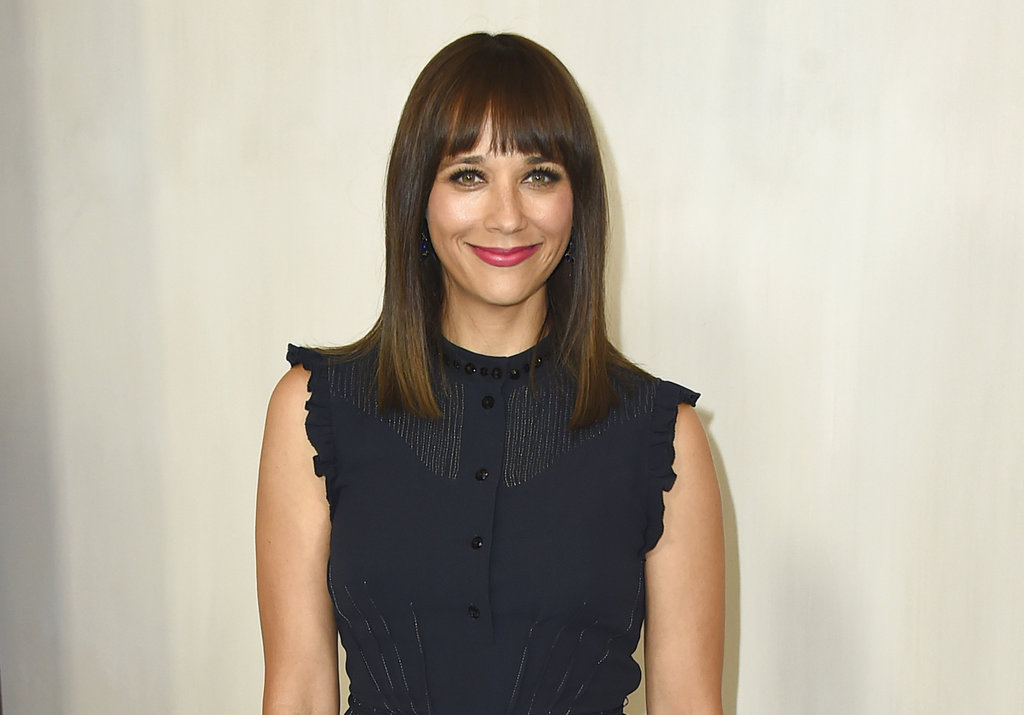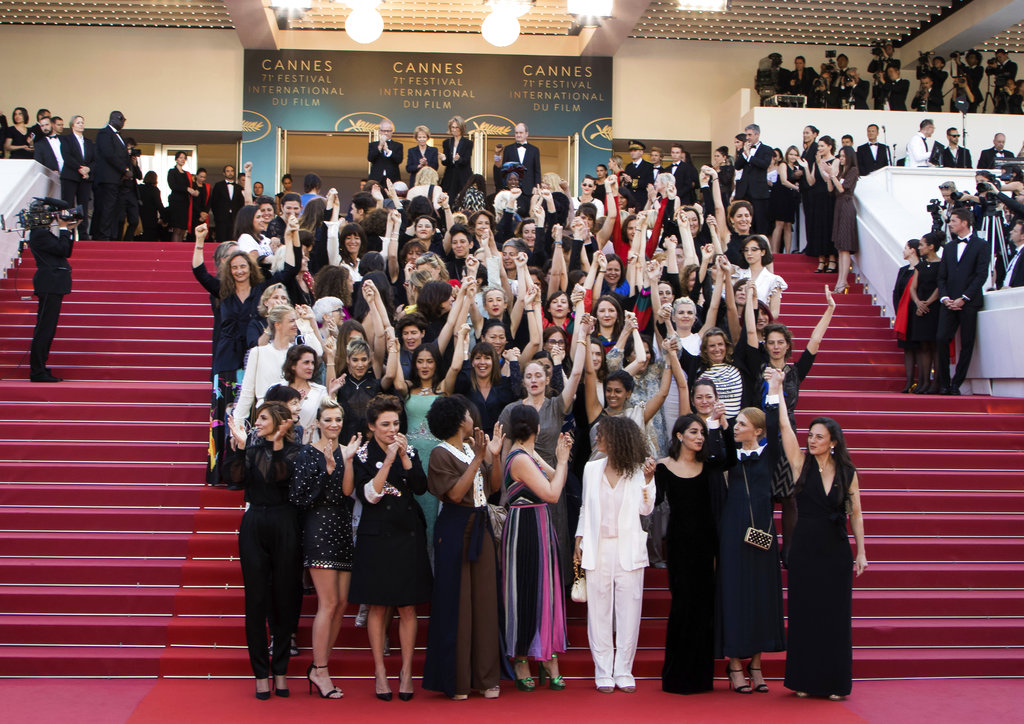After Rashida Jones exited Pixar’s Toy Story 4 in 2017, she noted that the studio, after 25 years in business, had not made a single feature film directed by a woman, calling it “a culture where women and people of colour do not have an equal creative voice”.
So when Pixar co-founder and CEO John Lasseter stepped down earlier this year after acknowledging “missteps” in his behaviour with employees, he was more than another casualty in the long list of film industry power players toppled by the #MeToo movement. He was a symbol of a Hollywood culture that is dying — or at least under siege.
“These giant, multi-billion-dollar companies, they all need a makeover,” Jones now says. “And I think people are starting to recognise that. To me, that is a victory. Brave people have come forward and made this whole machine start to question itself.”

When Rashida Jones and her writing partner Will McCormack exited Pixar's Toy Story 4, she noted the animation studio's poor record of female filmmakers. AP
In the year since sexual assault allegations surfaced against Harvey Weinstein, Hollywood has been soul-searching. The Weinstein case — along with those of Kevin Spacey, CBS’s Les Moonves, Amazon Studios’ Roy Price and many others — laid bare the painful reality for countless women in a movie industry where gender inequality was systematic and pervasive.
The #MeToo movement has gone far beyond the movies, but Hollywood remains ground zero in a cultural eruption that began 12 months ago with the Weinstein revelations, published by The New York Times and The New Yorker.
Through interviews with actresses, filmmakers, producers and others, The Associated Press sought to assess whether it is a palpably different place today than a year ago.
“Definitely there’s been a seismic shift,” says Carey Mulligan, the British actress. “I feel like if I was walking down the street and someone said something or did something outside the bounds of appropriate, I would feel so much more empowered to tell them to f*** off while before I probably wouldn’t. Those sort of gray area things are now no longer gray areas.”

Carey Mulligan says there’s been “a seismic shift” in the movie industry, though much work remains to be done. AP
Mulligan, who played an early 20th century women’s rights activist in 2015’s Suffragette and has herself been vocal about Hollywood’s pay gap, says that in every job she’s had for the last year, there's been a well-known code of conduct on set. She’s optimistic that more change is coming.
Researchers at the University of Southern California’s Annenberg Inclusion Initiative have not yet found any marked difference in female representation on screen, behind the camera or in the boardroom. More data after the end of the year will give a clearer picture of 2018, but the previous 20 years have shown almost zero change. At least anecdotally, studios and production companies are more aggressively hunting for female filmmakers.
Salma Hayek has said her production company has been struggling to find female writers and directors. They’re all already booked.
“Everybody’s looking for their female content,” says Jones, whose documentary Quincy was recently released by Netflix. “They’re starting to understand that content that’s created by and shepherded by women and people of colour is super underrepresented in the business. And everybody’s scrambling to try to fix that.”
Measuring cultural change in a far-flung, $50 billion industry is difficult. Many of the epicentres of the movie business — red carpets, film festivals, award shows — have struck a different tone in the wake of Weinstein. While “who are you wearing” has steadily crept back into the red-carpet lexicon a year after women wore black to the Golden Globes, protest has engulfed many of the frothiest events on the movie calendar, from the Oscars to the Cannes Film Festival.

In this May 12, 2018, file photo, 82 film industry professionals stand on the steps of the Palais des Festivals to represent what they describe as pervasive gender inequality in the film industry, at the Cannes Film Festival. AP
But some see a limit to what such demonstrations can accomplish. “It’s a great thing when you’re on the red carpet and people are talking about sexual assault. At least it’s out in the open,” says actress Viola Davis. “My fear is that people feel like the focus of sexual assault is just on actresses in Hollywood and studio execs like Weinstein.”
She worries about the movement becoming limited to “outing the men, putting them in the court of public opinion and just destroying their careers. It’s way bigger than that. One out of every 4 women — and there’s some statistics that say it’s 1 out of 3 — will be sexually assaulted by the time they’re 18.”
Like many revolutions before it, #MeToo has sought to codify permanent changes. The Academy of Motion Picture Arts and Sciences instituted a code of conduct and booted not only Weinstein but Bill Cosby and Roman Polanski.
In addition, “inclusion riders” — contractual agreements to try to hire diverse casts and crews — have proliferated. Last month, Warner Bros became the first major studio to make a similar pledge. Many prominent film festival directors have also signed agreements to push their executive boards to gender parity.
In an attempt to abolish the “casting couch” culture that Weinstein allegedly exploited, The Screen Actors Guild created guidelines — supported by the producers’ guild — instructing producers and executives to refrain from holding professional meetings in hotel rooms and homes. It urged members not to agree to meetings in “high-risk locations”.
“People have been talking for decades about how terrible the casting coach is. Even with that knowledge, it was still going on. There was nothing concrete, written down saying: unacceptable,” says Gabrielle Carteris, president of SAG-AFTRA. “Us putting that in a guideline was so empowering for members because we’ve all been put in that situation. And I really want to salute the studios because we did it really in partnership with them.”
The guidelines will soon be expanded to establish rules around nudity on set.
“The kind of work we do is so intimate. It’s different than being a lawyer or a doctor or a dentist,” Carteris says. “But there are rules for workers in this country, and it was really important to define what those rules are.”
The movie business still lacks a single, industry-wide reporting system for sexual harassment and assault, though a committee led by Anita Hill is working to create one. Time’s up, which is spearheading much of the pressure put on Hollywood, has also amassed a $21 million legal-defence fund for women who suffer from harassment and assault at work in any industry.

It feels like we’re moving in the right direction, but women and minorities are such a tiny percentage of this industry.
Nicole Holofcener, filmmaker
Yet, with everything that has happened in the last year, most observers say not nearly enough has been done to address long-term inequalities in Hollywood.
“It feels like we’re moving in the right direction, but women and minorities are such a tiny percentage of this industry,” says filmmaker Nicole Holofcener, whose latest is The Land of Steady Habits.
“I open up my Director’s Guild magazine, and it has films that the DGA is screening and sometimes there’s not one woman, not one black person. They are all white male directors and my jaw is on the floor. I think: How can this still be?”
Holofcener has mixed feelings about all the attention on gender. “It's a good thing to highlight our work, but I wish we didn’t have to,” she says.

If we have to keep spotlighting the gender of this and the gender of that, we’re kind of blowing it.
Julia Roberts
Julia Roberts, who was once among the highest paid movie stars, agrees. “Every year that it’s ‘the year of the woman’, let’s just have it always be the year of the artists,” Roberts says. “If we have to keep spotlighting the gender of this and the gender of that, we’re kind of blowing it.”
There are plenty of others in Hollywood who have misgivings about #MeToo. Sean Penn derided what he called the movement’s “salacious” quality, saying its spirit is “to divide men and women”.
But as the recent re-editing of The Predator showed, some behaviour remains a work-in-progress. Shane Black called his casting of an old friend, Steven Wilder Striegel, a previously convicted sex offender, an “irresponsible” decision. Striegel was cut the from the film only after actress Olivia Munn alerted 20th Century Fox to Striegel’s past.
Kirsten Schaffer, executive director of the advocacy group Women in Film, believes that the path to ending harassment is through parity. Evidence backs her up.
“The more women we have in leadership positions, the less likely the incidents of harassment. So we have a lot of work to do on that front,” Schaffer says.
“We’ve been living in a sexist, racist society for hundreds of thousands of years,” she adds. “We’re not going to undo it in a year.”











